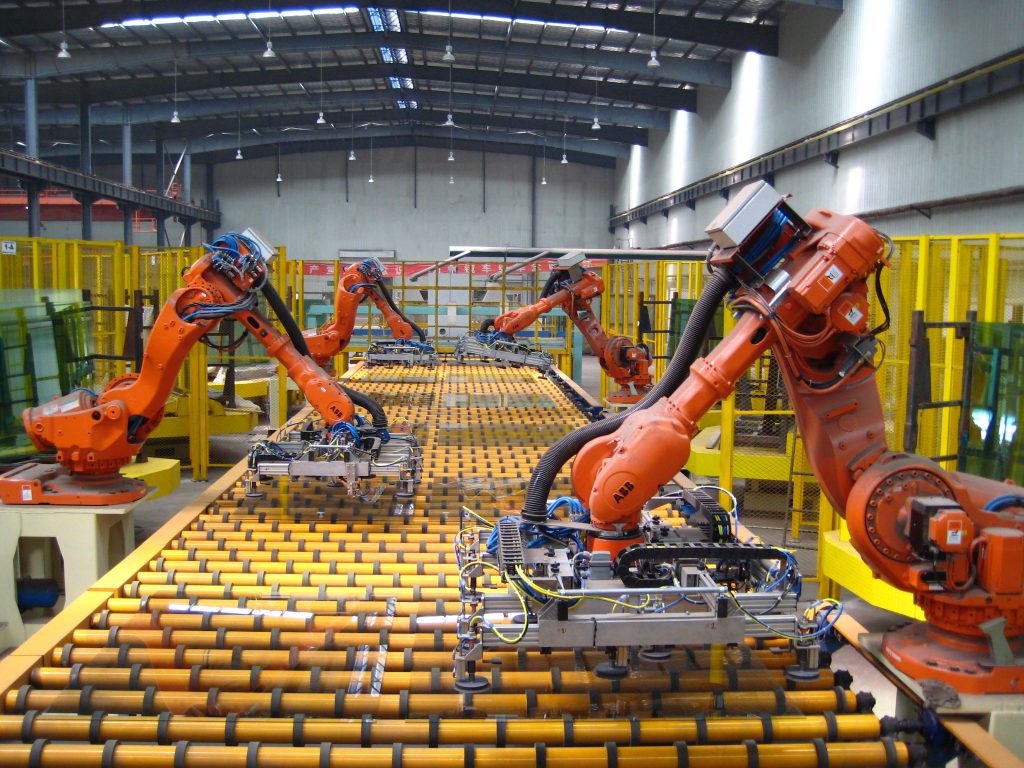Are Robots Taking Wisconsin Jobs?
Not quite, new research shows. Companies adding robots more likely to add more jobs.

Robotized float glass unloading. Photo by ICAPlants, (CC BY-SA 3.0), via Wikimedia Commons
A new study of factories in Wisconsin and elsewhere raises fresh questions about whether increasing automation is actually putting laborers out of work.
Manufacturers that use many robots tend to have more employees than facilities without robotics, according to researchers at New York University, Stanford University and the U.S. Census Bureau.
“Factories that adopt robots see a subsequent increase in employment,” said Robert Seamans, an associate professor at New York University and one of the authors of a new study.
During a recent appearance on Wisconsin Public Radio’s “The Morning Show,” Seamans said similar patterns emerge in other nationwide research and analysis of other countries, such as Canada, France and Spain.
“It’s good for the firm,” he said. “It’s also good for the economy.”
While factories with automation are experiencing more job growth, Seamans said the nature of work in these businesses is changing. For example, jobs might move from factory floors to positions in sales, marketing, or research and development.
Automation in factories is particularly popular in the Midwest, in part due to the automotive industry, the researchers also found. Wisconsin, Iowa, Michigan, Kansas and Minnesota boast the nation’s highest rates for robot adoption in manufacturing.
“Automotive historically has been a leader when it comes to adoption of new technologies,” Seamans said.
“Robot integrators” might be another reason for the concentration of robotics in Midwestern manufacturing, Seamans said. Integrators are third-party firms that help manufacturers learn to use and benefit from available robotics.
More automation in Wisconsin and other Midwest states might also stem from a “contagion effect,” Seamans said. Companies might see neighbors adopting technology and aim to copy that success. Specialists who develop, operate and understand automation might also be clustered nearby.
While the research found factories with many robots tend to have a more highly educated workforce, Seamans said it remains unclear whether a larger presence of universities or community colleges is driving that pattern.
“A highly educated and well-trained workforce is probably the single biggest thing that an area could do to help attract a manufacturer that wanted to adopt robots,” he said.
The new findings are based on an analysis of annual manufacturer surveys by the U.S. Census Bureau. Seamans said researchers may next examine robotics in other sectors of the economy, such as transportation and warehousing.
Listen to the WPR report here.
Are robots taking Wisconsin jobs? Not quite, new research shows was originally published by Wisconsin Public Radio.
If you think stories like this are important, become a member of Urban Milwaukee and help support real, independent journalism. Plus you get some cool added benefits.





















